Game Concept
Magic Is Hard
Platformer; crazy controls; dungeon crawler elements
You're a wizard! But it turns out casting spells isn't so easy. You know all the spells, but apparently this stuff takes talent, and you'll need to get the hang of casting each and every one if you want to complete your quest!
An absurdist platformer, you play as a wizard who already has the book-smarts, but has never cast a spell before. Learn to fly, teleport, and blast powerful spells, with no cartoon-y safeguards: humans are squishy, and magic is hard.
Concept Creation:
This game hopes to combine the themes of hard-to-control platformers with elements of dungeon crawlers. Many dungeon crawlers have the player become all-powerful over time, able to survive almost anything thrown at them, and this game does the opposite: it combines challenging controls with a very powerful player, with two catches: Magic Is Hard, and humans are very easy to damage.
Since games began, the concept of hard to control games have always been prominent, and have had many interpretations. An early example is The Impossible Game, a deceptively simple but immensely challenging game that has only one button, and is easy to start playing, but gets very hard very fast. Other, more recent examples, include games such as Getting Over It and Pogostuck, which involve platforming using a very simple control system, but quickly become very challenging, and borderline infuriating in the best way possible.
Thematically, a lot of inspiration was taken from the wide range of magic systems in media and other games. However, the primary inspiration for the idea of magic being challenging to control was from Dungeons & Dragons, where the concept of Wild Magic shows a more chaotic side of magic. A side of magic that isn't an alternate science, but instead a hard to control mess of logic-less, and dangerous power. This game hopes to capture that: magic is hard to control, and humans aren’t indestructible.
Similar Titles
Difficult controls
- Super Bunny Man (https://www.catobyte.com)
- Getting Over It With Bennett Foddy (Unsurprisingly, by Bennett Foddy @ https://www.foddy.net)
Humour & Magic
- Magicka was also an inspiration for some aspects of the game, where the humour can be absurdist and insane, and has the player able to use powerful magic, but requires the player to be aware of certain spell combinations being dangerous (such as water + lightning). Magicka is a top down 3D game and is far beyond the scope of this game, and has a much stronger focus on combat with only minor puzzle solving, whereas Magic Is Hard aims to keep combat as a secondary mechanic.
One-Hit kill games:
- The "combat system" in Magic Is Hard will aim to avoid complex systems, including health systems. In this way, it's similar to the classic Super Mario Bros, where hitting a single trap or enemy is instantly lethal and returns the player to their last checkpoint.
Audience
The demographics of platforming games is hard to isolate, as it's such a classic and widespread genre, with a wide range of styles and themes that it can be put into. However, it's worth considering the classic and continuing franchise of Super Mario Bros, which is arguably one of the most recognisable pop culture icons of the late 20th century. According to an analysis from market analysis company Marketing91, the primary demographic of Mario games ranges from young children to men up to the age of 30 for nostalgia reasons, but keeps their target wide enough to encompass the majority of young people, irrespective of gender or specific age. It is noted that the target tends to be "casual gamers". The stylistic choices in Mario, in addition to the easy to understand gameplay, likely contribute to this wide demographic.
Due to the control-focused nature of this game, the target is likely not people who aren't familiar with a variety of games, however it's also unlikely that the stereotypical "hardcore gamer" will be attracted to it either, as it isn't a game that's likely to have more than a few hours of gameplay, even if a large amount of levels are added, unless more focus on combat or puzzles is added.
Treatment/Overview
Premise
You’re a wizard! And you’ve just been tasked by the king to retrieve some magical artefacts from a far-off dungeon. One problem though: you’re more of a bookworm, and you’ve not actually cast a spell before. Oh well! How hard can it be?
An example of the cartoonish fantasy style - (Credits GrafxKid on OpenGameArt.org)
Gameplay
Gameplay will be primarily a platformer, but may also include elements of puzzles, and may contain enemies to fight. However, at the core of the game, the primary mechanics will be those used for movement and using magic.
Movement Magic:
- One of the first mechanics the player learns is how to fly. It's easy to hover, but the player soon discovers that actual flight is challenging. The player input will be akin to tank controls, forcing the player to strafe left and right to correct themselves and stop themselves from being thrown into the ground at Mach 7. Smash into something too fast, and you lose: humans are fragile.
- After getting used to flying, the player will discover they can teleport short distances: blinking! However, they soon realise that this, too, is dangerous. There are no safeguards here: yes you can teleport, but there's nothing to stop you from teleporting inside a wall if you're not careful.
Platforming & Puzzle solving:
- While the player can fly, dangers in the terrain are still a threat. As flying can be dangerous, not all levels require flight, and can be simply completed with standard platformer mechanics. However, most levels, if not all, will require the player to use magic to progress.
Other Magic:
- For puzzle elements, and fighting enemies, the game may include other types of magic for combat or destroying terrain. However, these types of magic will likely not be 100% safe, making it unwise to spam spells without thinking it through first. For example, it's easy to breathe fire, but fire is hot and if you do it for more than a few seconds you'll probably light yourself on fire too.
Art Style
Overall, the artistic style will follow a typical fantasy pixel art pattern. The game is designed to be quite whimsical in appearance, and combine cartoonish physics with chaotic magic that yields unpredictable results. Following the fantasy setting, most art assets will be compatible with medieval art assets, such as stone brick dungeons, and spike traps, will likely be usable here.
An example tileset - (Credits @JoeCreates on Twitter)
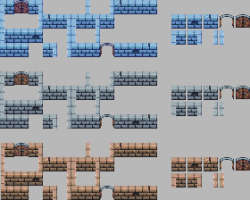
An example tileset - (Credits Daniel Siegmund, for OpenArtGames)
While particle systems will likely be the primary source of effects, pixel art assets may also be used for some effects, including acting as particles themselves.
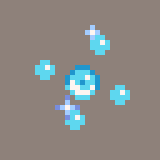
Example magic sprites (Credits GrafxKid on OpenGameArt.org)
While enemies will not necessarily be a focus of the game, they will likely take the form of fantasy or magical creatures, such as orcs or nondescript immaterial enemies.
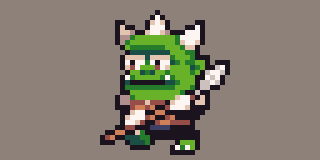
Example fantasy enemy (Credits GrafxKid on OpenGameArt.org)
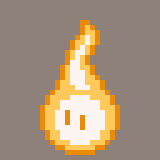
Example magic enemy (Credits GrafxKid on OpenGameArt.org)
The game may also include collectables, such as keys, used to complete puzzles.

Example keys (Credits BizmasterStudios on OpenGameArt.org)
Get Magic Is Hard
Magic Is Hard
You're a wizard! But it turns out casting spells isn't so easy. Magic Is Hard.
| Status | In development |
| Author | J Weber |
| Genre | Platformer |
| Tags | Difficult, Fantasy, Flight, Funny, Magic, Singleplayer, Wizards |
More posts
- Axes & SpikeballsJan 21, 2021
- Crossbows, Boulders, & UI UpdatesJan 19, 2021
- Lights, Lava, & LevelsDec 11, 2020
- DocumentationOct 15, 2020
- User GuideOct 15, 2020
- Game TestingOct 06, 2020
- Menus, Settings, and Time TrialsOct 03, 2020
- Moving Traps & Graphical FixesSep 24, 2020
- Dialog & Level IterationSep 18, 2020
- Levels, Mechanics, and IterationSep 09, 2020
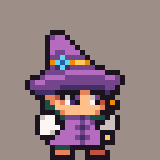

Leave a comment
Log in with itch.io to leave a comment.